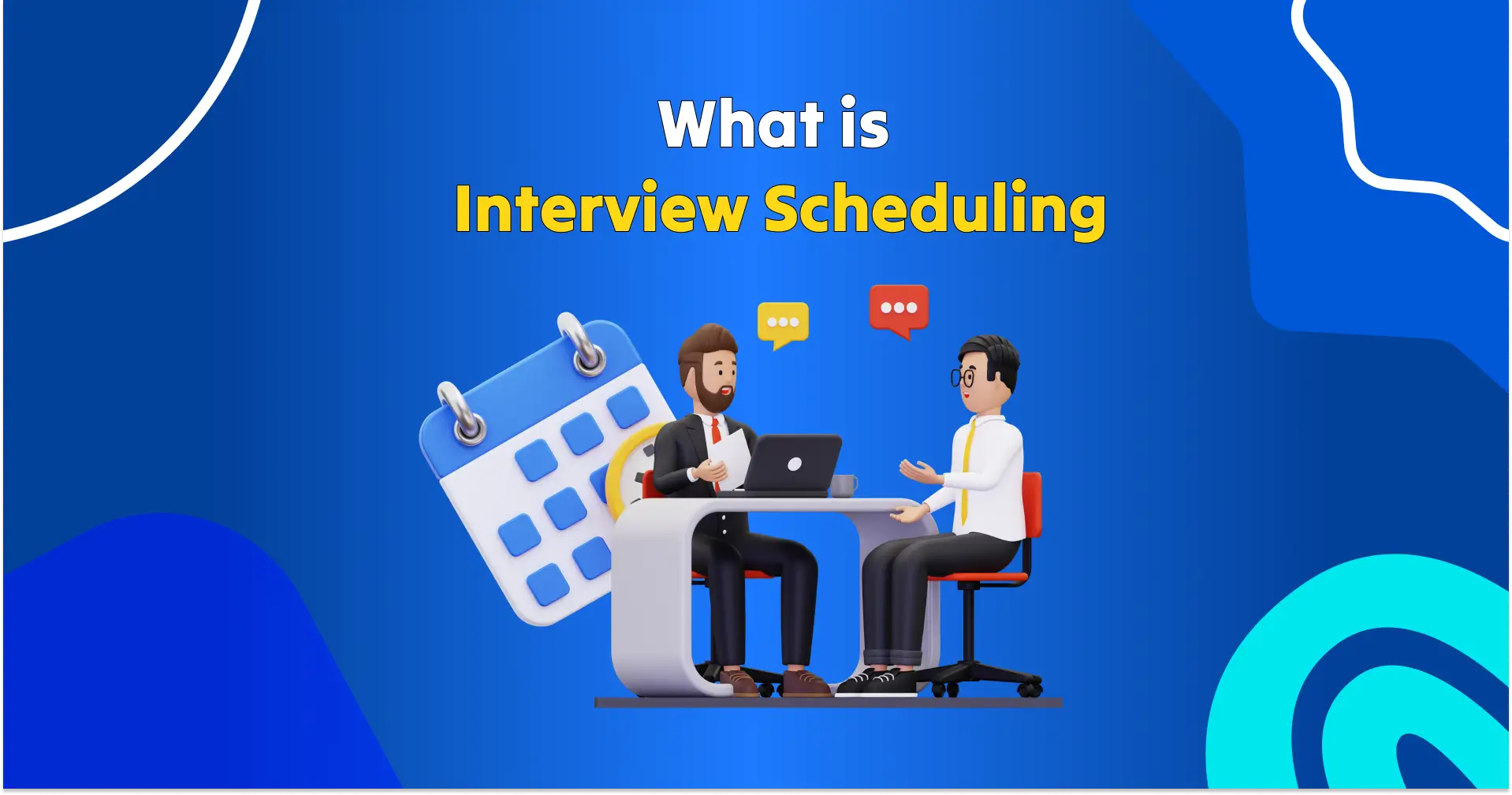
Interview Scheduling: The Complete Guide for a Smooth Hiring Process [+Pro Tips]
Hiring the right candidate isn’t just about asking the right questions; it starts much earlier, with effective interview scheduling.
Think about it: a messy back-and-forth over time slots can easily frustrate candidates, delay your hiring process, and even create a poor first impression of your company.
That’s why interview scheduling is more than a simple calendar task; it’s a strategic step in building a positive candidate experience and maintaining an efficient recruitment workflow.
In this guide, we’ll walk you through everything you need to know, from planning and scheduling interviews to best practices that make the process seamless.
What Is Interview Scheduling?
Think of interview scheduling as the bridge between finding a great candidate and hiring them. It’s the step that connects interest with opportunity.
Simply, interview scheduling means setting up a convenient time for both the interviewer and the candidate to meet, whether it’s a quick phone call, a video chat, or an in-person discussion.
54% of Gen Z candidates (a growing part of the workforce) will not complete an application if they feel the company’s recruiting methods are outdated.
Interview scheduling is more than just picking a date and time; it’s the process of coordinating a meeting between a candidate and an interviewer (or a panel) that includes the date, time, duration, and platform or location, considering time zones, managing last-minute changes, which ensures everyone knows exactly when and where to show up.
Done right, interview scheduling does more than just organize meetings. It:
- Reflects your company’s professionalism and respect for candidates’ time.
- Keeps hiring teams aligned and productive.
- Reduces no-shows, mix-ups, and endless email back-and-forths.
Why Automated Interview Scheduling Matters
Interview scheduling might seem like a small step, but it can make or break the hiring experience. When done right, it saves time, reduces stress, and leaves a positive impression on everyone involved.
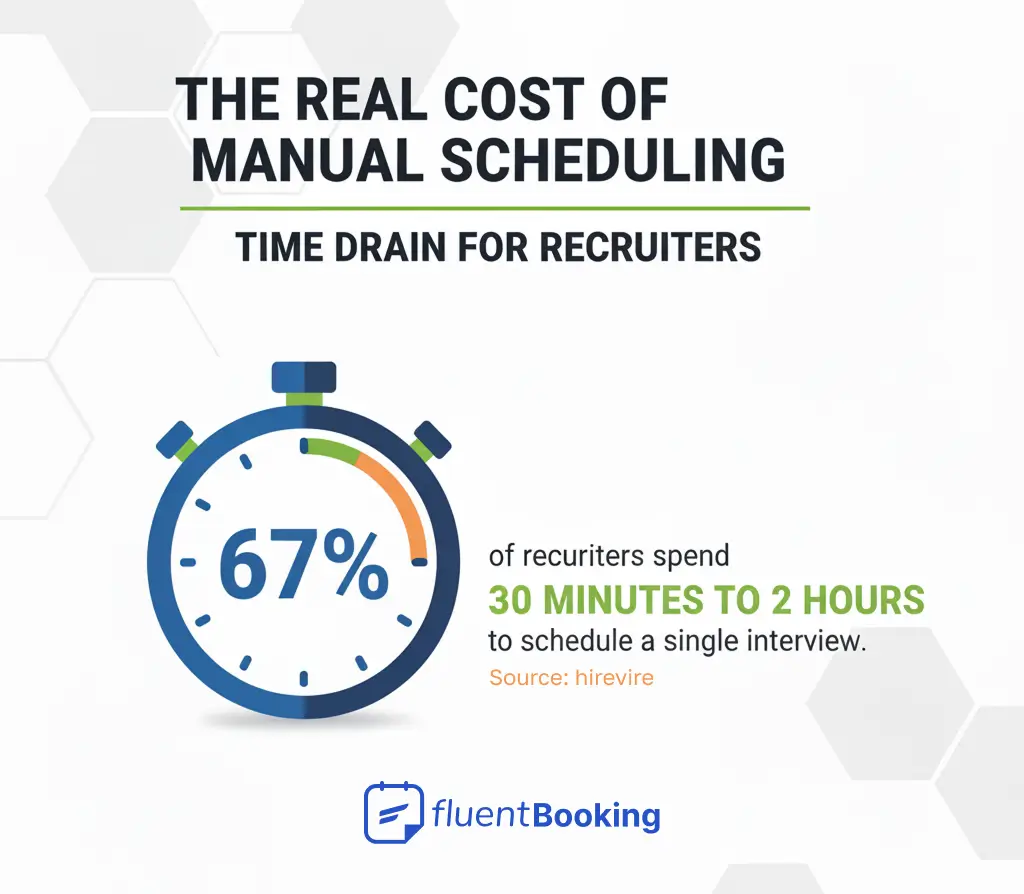
Around 94% of hiring professionals consider interviews “crucial” for making sound hiring decisions. That’s why how you schedule them and how smoothly the process runs play a major role in your overall hiring success.
For Candidates: Shows Respect and Professionalism
Scheduling interviews thoughtfully shows candidates that you value their time. Clear communication, flexible options, and timely updates help them feel respected and prepared.
In fact, 47% of job seekers expect to receive information about the next steps right after their initial interview. Delays or unclear communication can frustrate candidates and negatively impact their perception of your company.
For Recruiters and Hiring Teams: Boosts Efficiency
Efficient scheduling saves recruiters from endless email chains and double bookings. With the right process or tools, they can spend more time evaluating talent instead of coordinating calendars.
In a survey of 500 talent acquisition leaders, recruiting teams reported spending 42% of their time on interview scheduling in 2022, and that number continues to rise.
But an automated interview scheduling process can save hours each week, allowing recruiters to focus on what truly matters: finding and connecting with the right candidates.
For the Company: Strengthens Employer Brand
Your scheduling process reflects your company culture. A smooth, respectful experience builds trust and professionalism, qualities candidates remember, even if they aren’t hired.
Over time, this consistency helps you stand out as an organized and candidate-friendly employer, attracting stronger talent and improving hiring outcomes.
In short, interview scheduling matters because it impacts everyone candidates, recruiters, and the company. A well-organized schedule isn’t just about time management; it’s about creating a great first impression.
The 3 Stages of Interview Scheduling for a Successful Recruitment
Scheduling interviews might seem simple, but doing it well requires planning, coordination, and follow-through. Breaking it down into three stages, Before, During, and After, makes the process smoother for candidates, interviewers, and your team.
Before You Schedule
Preparation is key to a seamless interview:
- Plan ahead: Decide on a clear timeframe for interviews to avoid last-minute stress.
- Align your team: Make sure all interviewers’ schedules are coordinated before reaching out to candidates.
- Pick the right time: Mid-week (Tuesday–Thursday) usually works best for focus and attendance.
- Set the structure: Determine the interview format, expected duration, and who will participate.
Why it matters: A well-prepared schedule keeps interviewers focused, helps candidates feel confident, and ensures your company runs a professional, organized process.
During the Scheduling Process
This is where clear communication and smart tools make a difference:
- Use scheduling tools: You have to use some calendar tools or an appointment booking tool to manage invites, time zones, and reminders automatically.
- Offer flexibility: Give candidates multiple time options and consider their availability, especially if they’re currently employed or in another time zone.
- Be clear and professional: Share all essential details, format, duration, location, video link, and interviewers.
- Communicate thoughtfully: Confirm time zones, avoid inconvenient days, and maintain a friendly, professional tone.
Why it matters: Clear, considerate scheduling reduces confusion, minimizes conflicts, and shows candidates that your company values their time.
After the Schedule Is Set
Your job isn’t done once the time is agreed upon:
- Send a confirmation email: Include all key details, date, time, platform/location, interviewers, and preparation instructions.
- Set reminders: Send automated or manual reminders 24–48 hours before the interview to reduce no-shows.
- Prepare internally: Share the interview plan and questions with your team to ensure everyone is aligned.
Why it matters: Follow-up ensures that interviews run smoothly, everyone knows what to expect, and your team can evaluate candidates consistently.
Use FluentBooking to automatically send professional interview reminders, confirmations, and rescheduling options, time zone management, without the back-and-forth in your WordPress site.
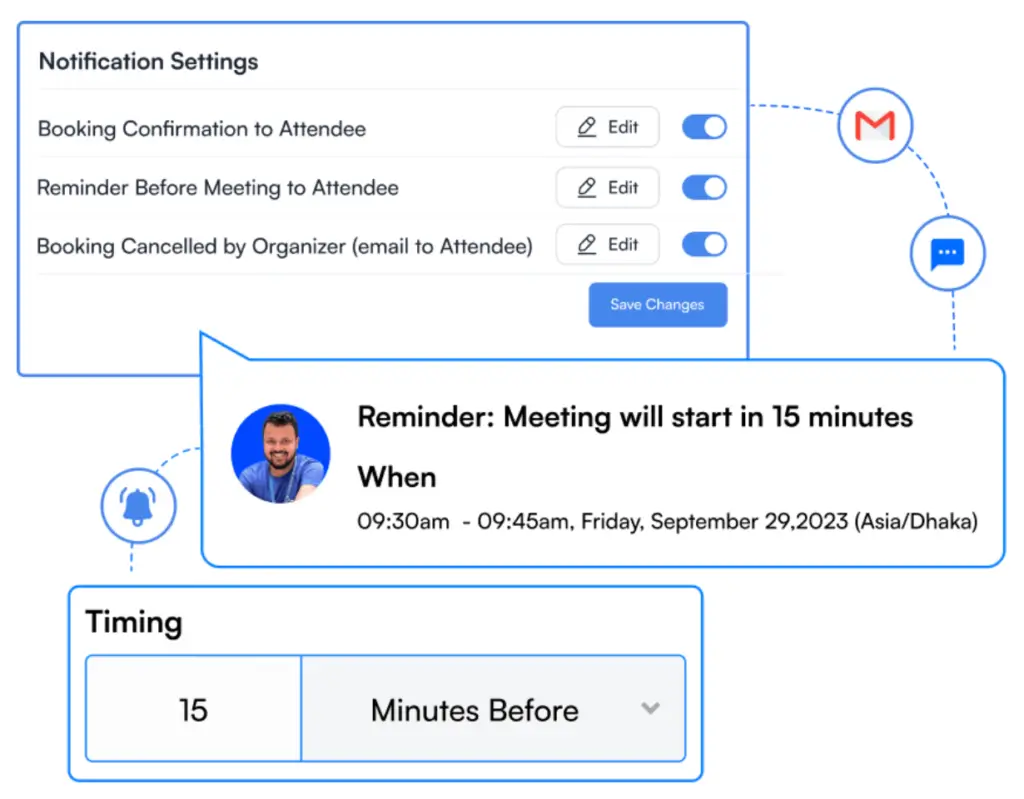
Best Practices to Improve Your Interview Scheduling
Getting interviews scheduled smoothly isn’t just about filling calendar slots; it’s about creating a positive experience for both candidates and recruiters. Here are a few proven practices that can make the process faster, more organized, and stress-free:
Choose the Right Time and Day
Timing matters more than you think. Mid-morning interviews (around 9–11 AM) are ideal since everyone’s alert and settled into their day. Avoid late afternoons or end-of-week slots when focus tends to dip. Similarly, Tuesdays to Thursdays are often the best days to schedule interviews.
Automate Communication
Manually sending invites, reminders, and confirmations can eat up hours every week. Automate these steps using scheduling tools to save your time and reduce no-shows. Automation not only saves time but also ensures candidates never miss important updates.
Pro Tip: Use FluentBooking on your WordPress site to automate notifications for both candidates and interviewers, reducing no-shows and keeping everyone aligned without extra follow-up.
Add Buffer Time between Interviews
Avoid back-to-back interviews. Adding a 10–15 minute buffer time gives interviewers time to reset, take notes, and prepare for the next candidate, leading to better focus and fairer evaluations.
Be Flexible to Your Attendees
Remember, candidates might have existing commitments or work in different time zones. Offering flexible interview slots shows respect for their time and helps reduce scheduling conflicts. This small gesture can significantly improve the candidate experience and boost your brand reputation.
Pro Tip: You can easily set up custom availability with FluentBooking and make interview scheduling flexible, both for the recruiter and attendees.
Use templates for faster scheduling
Email or calendar templates for confirmations, reminders, and reschedules can make your process more efficient. You’ll spend less time drafting messages and more time focusing on hiring the right people.
Bonus: Want to save even more time? Explore these free resources:
- Use our interview invitation email templates to send quick, professional outreach.
- Try our interview reminder email templates to reduce no-shows and keep candidates on track.
Confirm Details and Time Zones
For remote interviews, always double-check time zones. A simple confirmation email that includes the interview’s time, date, platform, and participant names helps prevent confusion. This also makes your company appear more organized and respectful of the candidate’s time
Track key scheduling metrics
Keep an eye on metrics such as average time-to-schedule, candidate no-show rate, and reschedule frequency. These insights help you identify where delays or friction are happening and fix them before they affect your hiring pipeline.
Provide a clear reschedule policy
Life happens, both for candidates and recruiters. Having a clear, respectful reschedule policy (and communicating it early) builds trust and professionalism, even if things need to change last minute.
Bonus: Need to handle last-minute changes smoothly? Check out our reschedule email templates to communicate updates professionally.
Make Interview Scheduling the Easiest Part of Hiring
Interview scheduling doesn’t have to be the chaotic, time-draining task it often becomes. With the right approach, clear communication, smart tools, flexible options, and thoughtful follow-ups, you can turn it into one of the most organized and candidate-friendly parts of your hiring process.
And remember, you don’t have to manage it all manually. You can use an automated scheduling tool that helps automate invites, reminders, time zones, and availability, so you can focus on what actually matters: choosing the best talent.
A smooth scheduling experience is no longer a “nice to have.” It’s a competitive advantage in today’s hiring landscape. Start refining your process today, and watch how much simpler and more successful your interviews become.
Frequently Asked Questions
Ratul Ripon
I enjoy making complex ideas simple and engaging through my writing and designs. With a strong knowledge on content writing and SEO, I create technical content that’s both easy to understand and interesting.
Table of Content
Subscribe To Get
WordPress Guides, Tips, and Tutorials





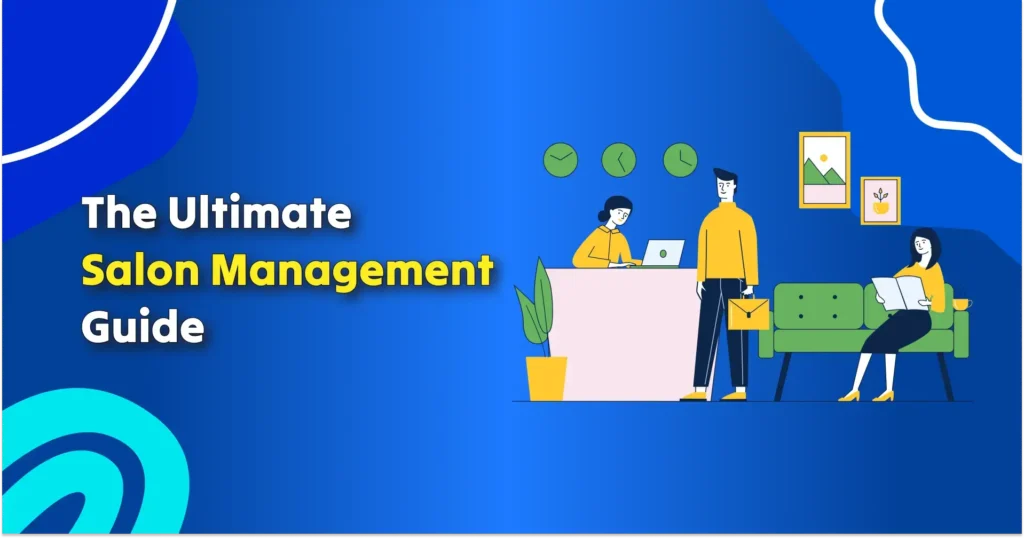
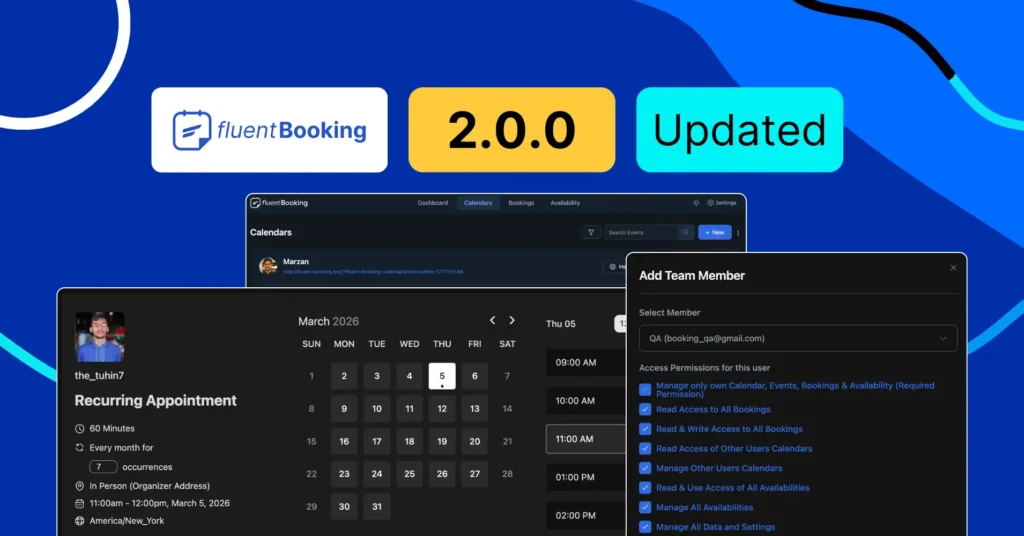
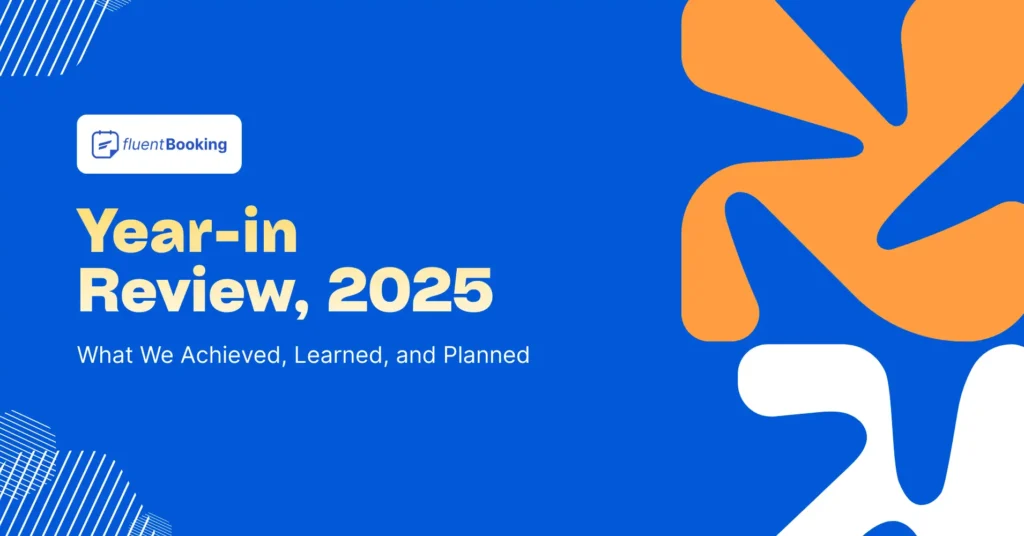
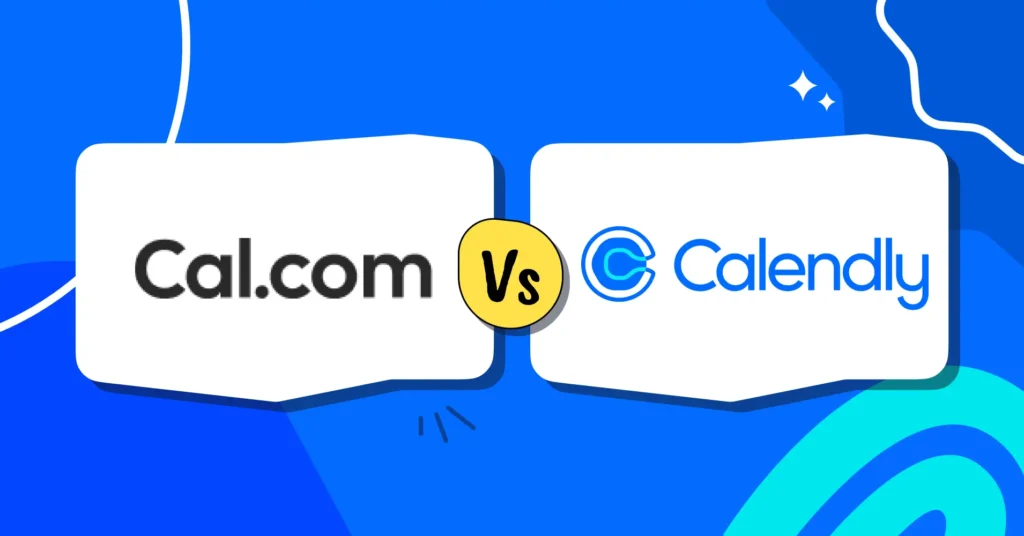
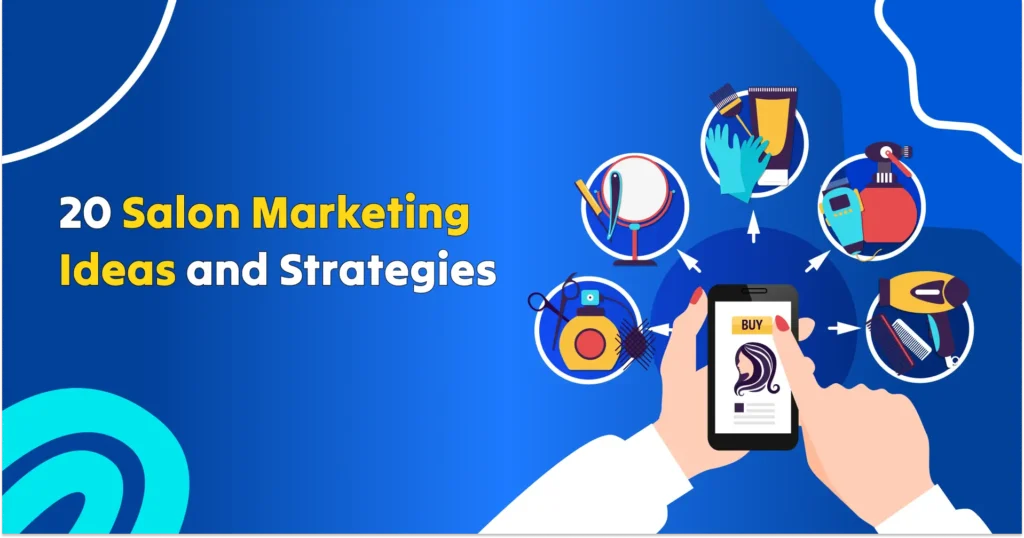

Leave a Reply